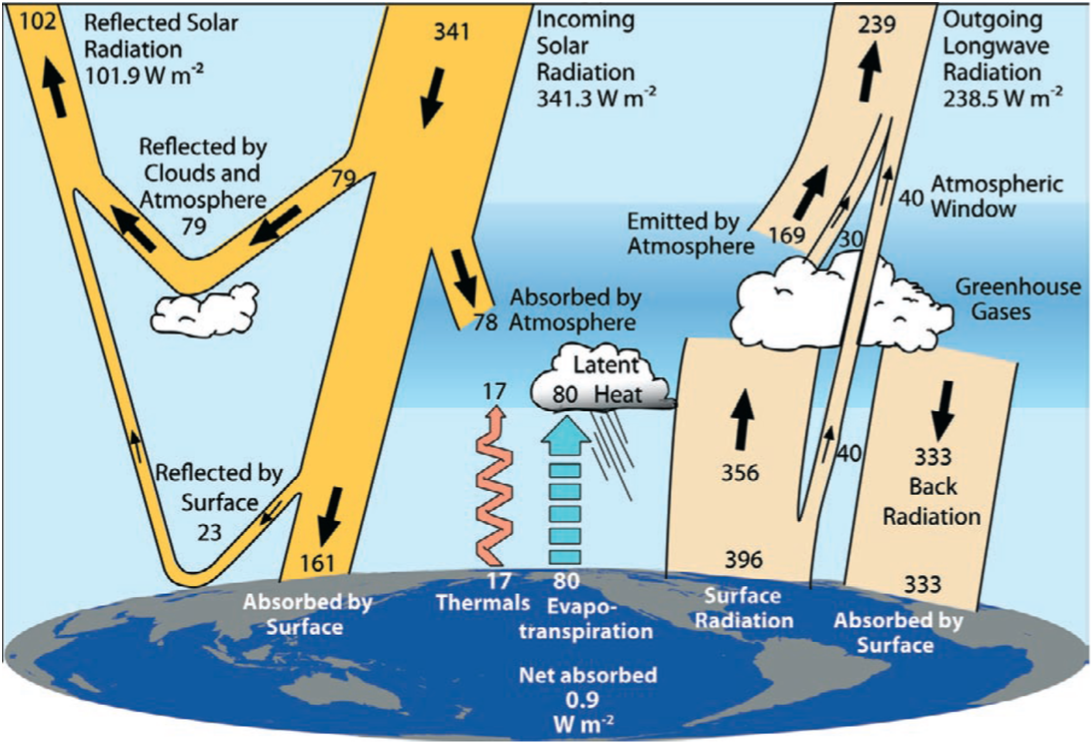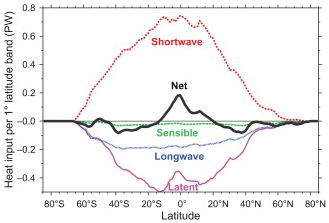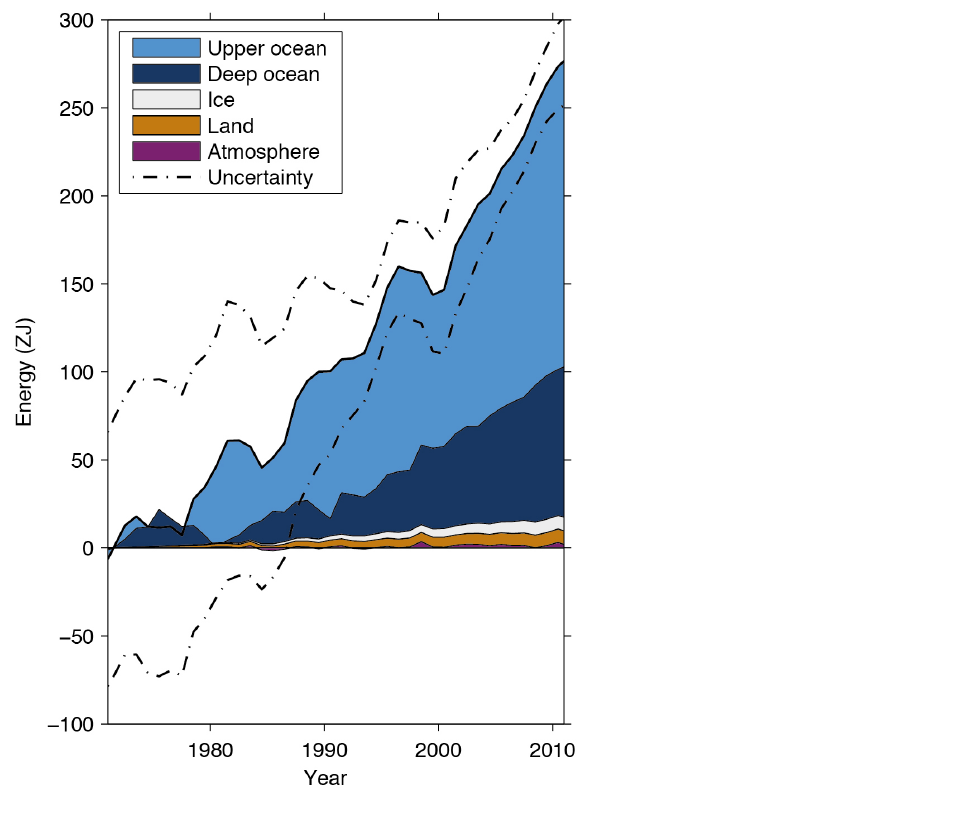The Earth's Energy Budget
Energy sources
The sun is the main source of energy for the climate system on earth. The flux of shortwave radiation originating from the sun amounts to 1367 W/m² (Knutti 2015). It gets attenuated due to earth's spherical shape and day/night-cycles respectively and reaches at the top of the atmosphere a mean value of 341 W/m² (cf. figure below) (Burlando 2015). As the incoming radiation propagates through the atmosphere, it interacts with clouds, humidity, aerosols and ozone through reflection, scattering and absorption. These processes diminish the flux additionally down to 161 W/m². This energy is then taken up by the earth's surface. The The Earth's meridional heat transport transports heat from low latitudes polewards.
Radiative Emission
The earth emits radiation as well (396 W/m²) but on the contrary to the sun in the longwave range. This can be explained using the Stefan-Boltzmann law and Planck's law, which state that irradiance and the spectrum of radiation are temperature-dependent (Knutti 2015, Burlando 2015). 40 W/m² of it bypass absorption through atmospheric windows, 356 W/m² get absorbed by the atmosphere. 333 W/m² of the latter are radiated back to the surface due to greenhouse gases (i.a. water vapor, carbon dioxide, methane, ozone). This process is responsible for an imbalance of 0.9 W/m² in the earth's energy budget. This value is obtained by subtracting the reflected solar radiation and the outgoing longwave radiation from the incoming solar radiation.
Anthropogenic Effects
The emission of greenhouse gases by mankind increases the imbalance by lowering the amount of outgoing longwave radiation. This effect heats up the earth whereas the increase in temperature in turn leads to an increase in radiation (Stefan-Boltzmann law).
Impacts on the Oceans
As the specific heat of water is highest of all solids and liquids, except liquid NH3, over 90% of the existing energy imbalance goes into heating the oceans (between 1950-2013) (Frölicher 2015). The oceans can take up energy and redistribute heat in large scale ocean circulations.
In gerneral most of the energy goes into heating the upper ocean. A smaller fraction, around one half the amount of what is taken up by the upper ocean, goes into the deep ocean. Significantly less energy goes into the atmosphere, land and ice. The warmest water can be found around the equator and on western side of basin, as for exemple in the Western Pacific Warm Pool. The coldest zones are near the poles and eastern side of basin.
Since the beginning of the measurments a distinct increase in the amounts of energy is observed. That's why the climate change has and will have huge impacts on the oceans.
References
Paolo Burlando, Lecture “102-0237-00L Hydrology II” at ETH Zurich, Autumn Semester 2014.
Thomas Frölicher, Lecture “701-0478-00 Physical Oceanography” at ETH Zurich, Spring Semester 2015.
Reto Knutti, Lecture “701-0412-00L Klimasysteme” at ETH Zurich, Spring Semester 2015.
Lynne D. Talley, George L. Pickard, William J. Emery and James H. Swift, Chapter 5 - Mass, Salt, and Heat Budgets and Wind Forcing, In Descriptive Physical Oceanography (Sixth Edition), edited by Lynne D. Talley, George L. Pickard, William J. Emery, James H. Swift, Academic Press, Boston, 2011, Pages 111-145, ISBN 9780750645522, http://dx.doi.org/10.1016/B978-0-7506-4552-2.10005-8.
Kevin E. Trenberth, John T. Fasullo, and Jeffrey Kiehl, 2009: Earth's Global Energy Budget. Bull. Amer. Meteor. Soc., 90, 311–323. doi: http://dx.doi.org/10.1175/2008BAMS2634.1
Comments
- Extend the section “Impacts on the Oceans”. At which latitude does the ocean take up most heat? (add figure) — Samuel Eberenz 2015/05/27 10:01


